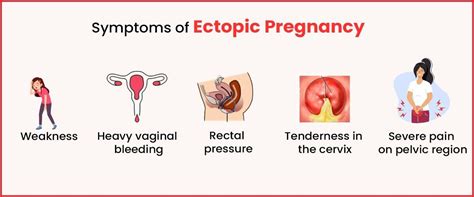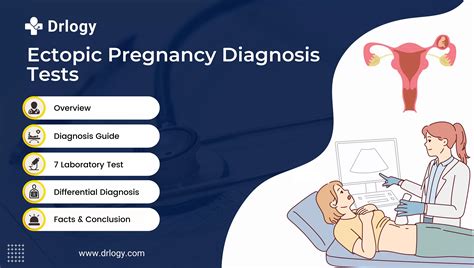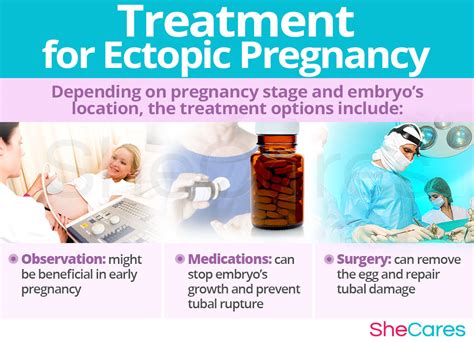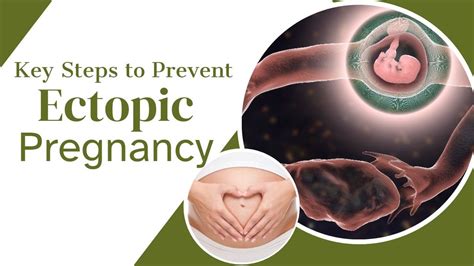Intro
An ectopic pregnancy is a serious and potentially life-threatening condition that occurs when a fertilized egg implants outside the uterus, usually in the fallopian tube. This type of pregnancy cannot continue to term and can cause severe complications for the mother. It is essential to recognize the signs and symptoms of an ectopic pregnancy to seek medical attention promptly. In this article, we will delve into the importance of understanding ectopic pregnancy signs, their causes, and the necessary steps to take if you suspect you or someone you know is experiencing an ectopic pregnancy.
The importance of recognizing ectopic pregnancy signs cannot be overstated. Early detection and treatment can significantly improve outcomes and reduce the risk of complications. Unfortunately, many women are unaware of the signs and symptoms of an ectopic pregnancy, which can lead to delayed diagnosis and treatment. According to the American Pregnancy Association, ectopic pregnancies account for approximately 1-2% of all pregnancies, and the risk of death from an ectopic pregnancy is 5-14 times higher than from a normal pregnancy.
Ectopic pregnancies can occur due to various factors, including damage to the fallopian tubes, hormonal imbalances, and genetic disorders. Women who have had previous ectopic pregnancies, pelvic surgery, or infertility treatments are at a higher risk of experiencing an ectopic pregnancy. Understanding the causes and risk factors can help women take preventive measures and seek medical attention if they experience any symptoms.
Ectopic Pregnancy Signs and Symptoms

The signs and symptoms of an ectopic pregnancy can vary, but common symptoms include abdominal pain, vaginal bleeding, and shoulder pain. The pain can range from mild to severe and may be constant or intermittent. Some women may also experience nausea, vomiting, and dizziness. It is crucial to seek medical attention immediately if you experience any of these symptoms, especially if you are pregnant or suspect you may be pregnant.
Abdominal Pain
Abdominal pain is a common symptom of an ectopic pregnancy. The pain can be sharp, stabbing, or crampy and may be localized to one side of the abdomen. In some cases, the pain may radiate to the shoulder or back. Women who experience abdominal pain should seek medical attention promptly, as it can be a sign of a ruptured ectopic pregnancy, which is a life-threatening condition.Vaginal Bleeding
Vaginal bleeding is another common symptom of an ectopic pregnancy. The bleeding can range from light to heavy and may be accompanied by clotting. Some women may experience spotting or brown discharge, which can be mistaken for a normal menstrual period. However, any vaginal bleeding during pregnancy should be evaluated by a healthcare provider to rule out an ectopic pregnancy.Ectopic Pregnancy Diagnosis

Diagnosing an ectopic pregnancy can be challenging, as the symptoms can be similar to those of a normal pregnancy or other conditions. A healthcare provider may use a combination of tests, including a physical exam, ultrasound, and blood tests, to diagnose an ectopic pregnancy. The ultrasound can help locate the embryo and determine if it is implanted in the uterus or fallopian tube.
Ultrasound
An ultrasound is a critical test in diagnosing an ectopic pregnancy. The test uses high-frequency sound waves to create images of the reproductive organs and can help locate the embryo. A transvaginal ultrasound is usually performed to get a clearer image of the fallopian tubes and uterus.Blood Tests
Blood tests can help confirm a pregnancy and detect the presence of human chorionic gonadotropin (hCG), a hormone produced during pregnancy. The levels of hCG can be lower in an ectopic pregnancy, and the test can help diagnose the condition.Ectopic Pregnancy Treatment

Treatment for an ectopic pregnancy depends on the severity of the condition and the patient's overall health. In some cases, the ectopic pregnancy may be treated with medication, while in other cases, surgery may be necessary. The goal of treatment is to remove the ectopic pregnancy and prevent further complications.
Medication
Medication, such as methotrexate, can be used to treat an ectopic pregnancy. The medication works by stopping the growth of the embryo and allowing the body to absorb the pregnancy tissue. This treatment is usually effective for small, unruptured ectopic pregnancies.Surgery
Surgery may be necessary to remove the ectopic pregnancy, especially if it has ruptured or is causing severe bleeding. The surgery can be performed laparoscopically or through an open incision, depending on the severity of the condition.Preventing Ectopic Pregnancy

While it is not possible to completely prevent an ectopic pregnancy, there are steps that can be taken to reduce the risk. Practicing safe sex, avoiding pelvic infections, and seeking medical attention if you experience any symptoms can help reduce the risk of an ectopic pregnancy.
Practicing Safe Sex
Practicing safe sex can help reduce the risk of pelvic infections, which can increase the risk of an ectopic pregnancy. Using condoms and getting tested for sexually transmitted infections (STIs) can help prevent pelvic infections.Avoiding Pelvic Infections
Avoiding pelvic infections, such as pelvic inflammatory disease (PID), can help reduce the risk of an ectopic pregnancy. Getting tested for STIs and seeking medical attention if you experience any symptoms can help prevent pelvic infections.Conclusion and Next Steps

In conclusion, recognizing the signs and symptoms of an ectopic pregnancy is crucial to seeking medical attention promptly. Understanding the causes, risk factors, and treatment options can help women take preventive measures and reduce the risk of complications. If you suspect you or someone you know is experiencing an ectopic pregnancy, seek medical attention immediately.
We encourage you to share this article with anyone who may benefit from this information. If you have any questions or concerns, please comment below. Remember, early detection and treatment can significantly improve outcomes and reduce the risk of complications.
What are the common symptoms of an ectopic pregnancy?
+The common symptoms of an ectopic pregnancy include abdominal pain, vaginal bleeding, and shoulder pain. Women may also experience nausea, vomiting, and dizziness.
How is an ectopic pregnancy diagnosed?
+An ectopic pregnancy is diagnosed using a combination of tests, including a physical exam, ultrasound, and blood tests. The ultrasound can help locate the embryo and determine if it is implanted in the uterus or fallopian tube.
What are the treatment options for an ectopic pregnancy?
+Treatment for an ectopic pregnancy depends on the severity of the condition and the patient's overall health. In some cases, the ectopic pregnancy may be treated with medication, while in other cases, surgery may be necessary.
